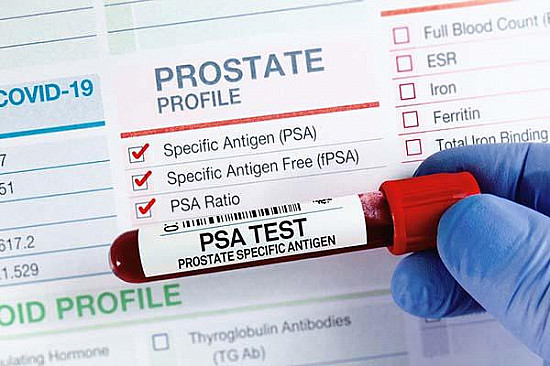Vitamin E may indeed increase the risk of prostate cancer
It was once thought that taking vitamin E could reduce the risk of prostate cancer. However, recent research suggests this is not the case. Back in 2008 one large study, known as the Selenium and Vitamin E Cancer Prevention Trial (SELECT), showed that not only did vitamin E fail to decrease the risk of prostate cancer — it may have increased the risk instead.
The SELECT trial was initiated after another study, known as the Alpha-Tocopherol, Beta-Carotene (ATBC) Cancer Prevention Trial, found that men who took vitamin E experienced fewer prostate cancer diagnoses and fewer prostate cancer deaths than men who took a placebo. While these results were intriguing, because the ATBC study did not aim to study prostate cancer specifically, and included a limited sample of men, further research was needed.
The SELECT trial was designed to specifically examine the impact of vitamin E and another supplement, selenium, on prostate cancer risk. The study included 35,533 men ages 50 and older who did not have prostate cancer. Participants were randomly assigned to take daily pills that contained vitamin E, selenium, both, or neither. To determine the impact of supplements on cancer risk, the researchers planned to compare cancer rates among the four different groups over several years.
In 2008, after following the men for only five and a half years, the trial was stopped short. The study’s safety monitoring committee concluded that neither vitamin E nor selenium — alone or in combination — offered protection against prostate cancer. More importantly, however, they noted that the risk of developing prostate cancer in the vitamin E group was slightly higher than the risk in the other three groups. Though the difference in risk between the groups was not significant in a scientific sense, it was still threatening enough to stop the trial.
Now, seven years into follow-up, this worrisome trend persists. Only this time, the results are more definitive. A new data analysis published in the October issue the Journal of the American Medical Association reveals that the vitamin E group is the only group with a significantly higher rate of both aggressive and non-aggressive prostate cancer. Compared with the placebo group, men who took only vitamin E during the trial were 17% more likely to get prostate cancer over the seven-year period. The researchers were unable to offer an explanation of why taking the vitamin supplement increased cancer rates in these men.
Dr. Marc Garnick, an internationally renowned expert in medical oncology and urologic cancer, and editor in chief of the Annual Report on Prostate Diseases, offers readers some advice in light of these alarming results.
“We know that eating a healthy, balanced diet can help prevent prostate cancer. Based on the results of the SELECT trial, I strongly discourage my patients from taking supplemental vitamin E or selenium. In fact, I tell all my patients to throw away essentially every supplement they swear by; studies have generally not shown them to be helpful for disease prevention. Overall, if people eat a healthy diet, they really shouldn’t need supplements.”
The SELECT trial is the only large study thus far that has shown these results. More, longer-term research is needed to determine exactly why vitamin E might lead to greater prostate cancer risk. The trial’s scientists will offer blood and tissue samples from 3,500 men who participated in the trial to other scientists with an interest in further investigating the potential vitamin E and prostate cancer connection.
Read more about about prostate cancer and vitamin E on the Harvard Prostate Knowledge website.
About the Author
Disclaimer:
As a service to our readers, Harvard Health Publishing provides access to our library of archived content. Please note the date of last review or update on all articles.
No content on this site, regardless of date, should ever be used as a substitute for direct medical advice from your doctor or other qualified clinician.















